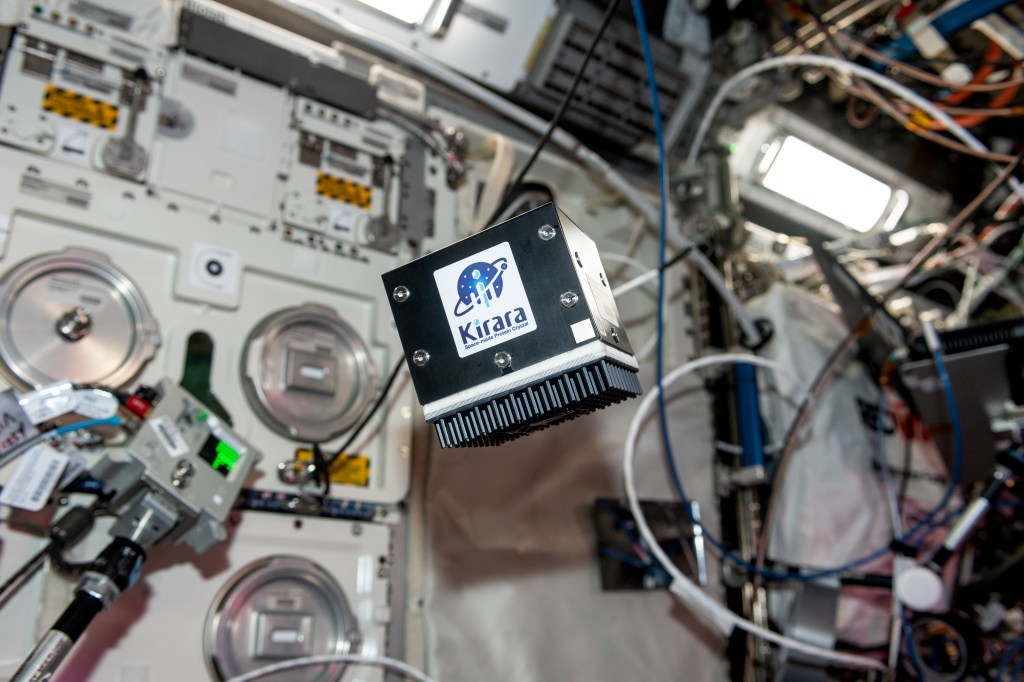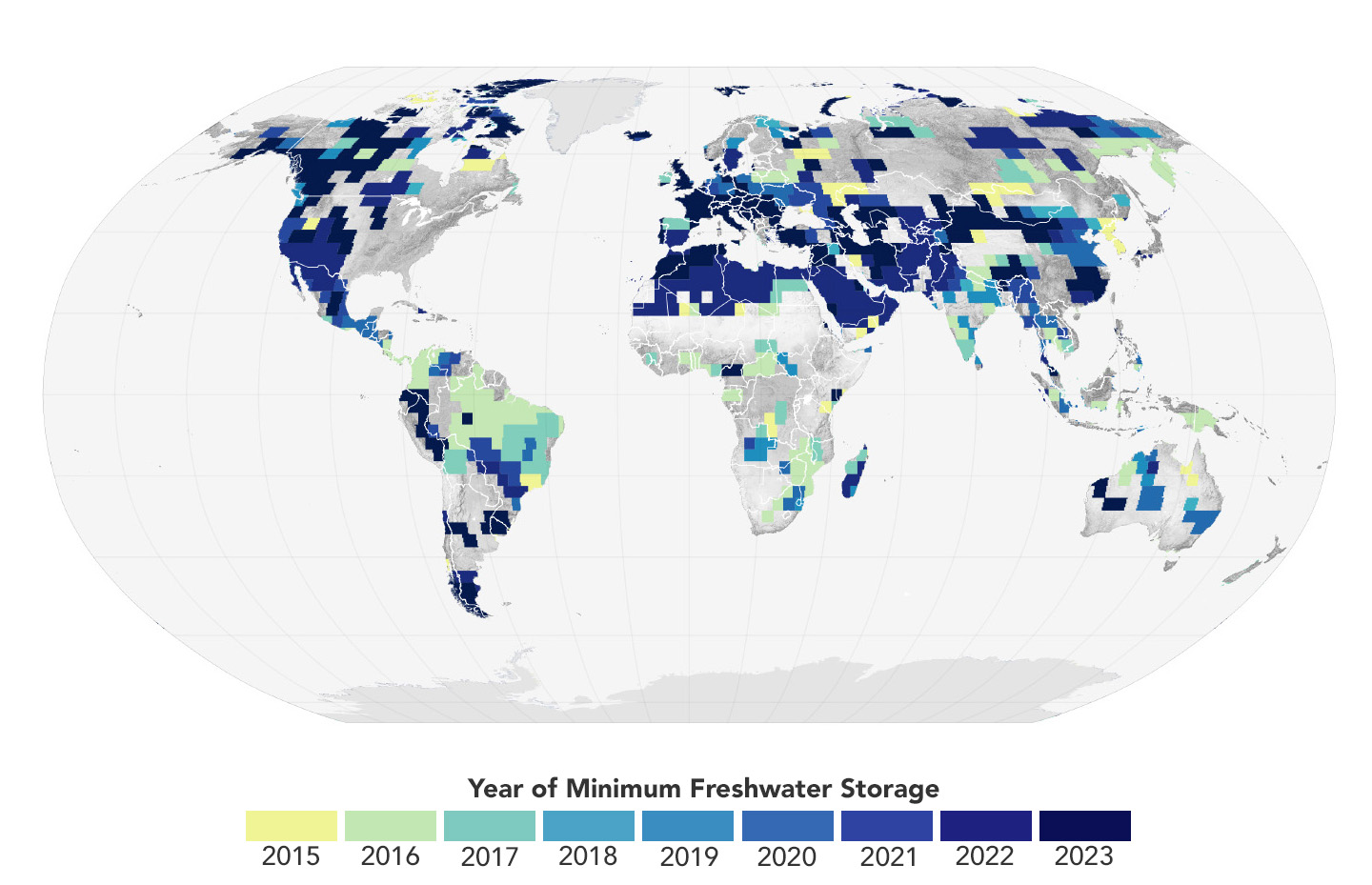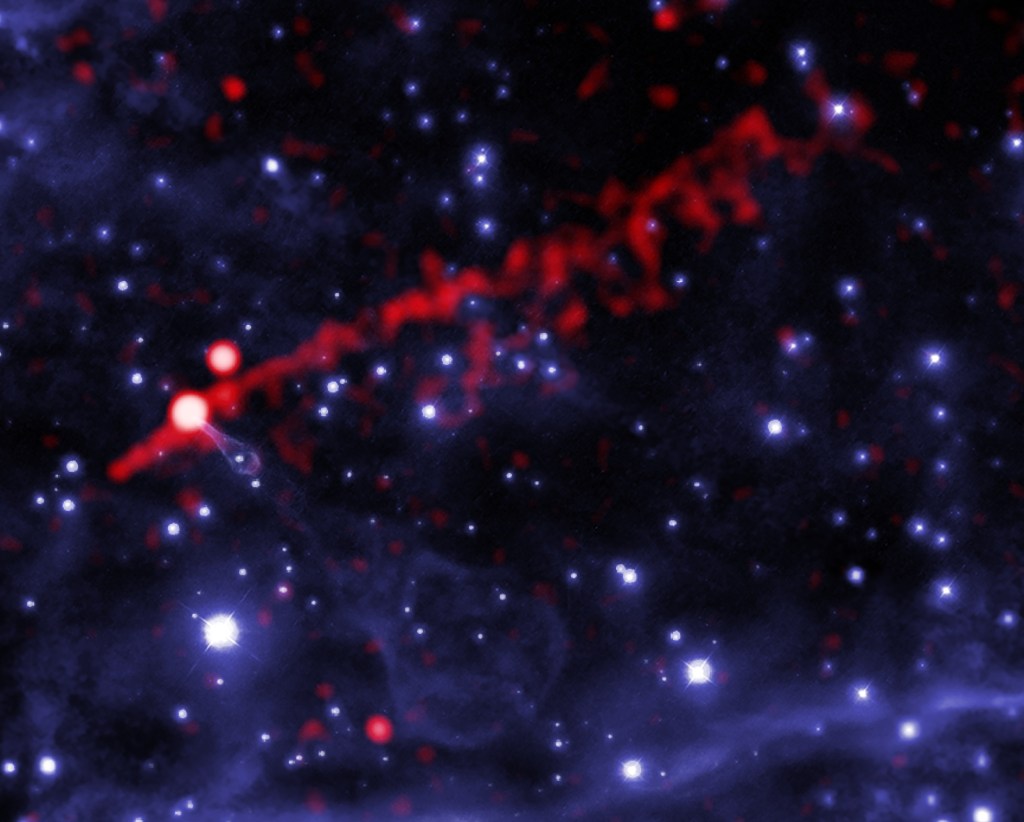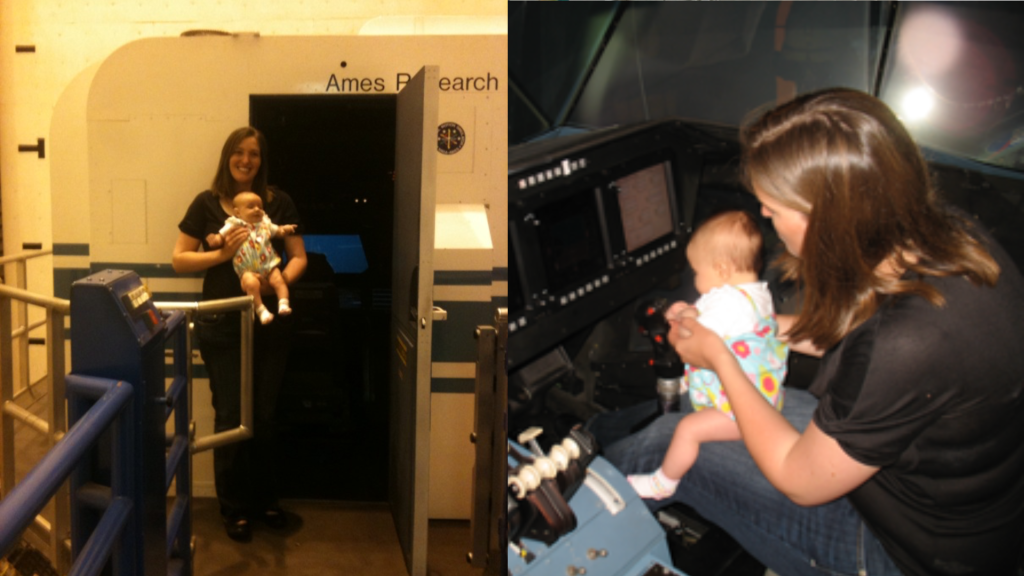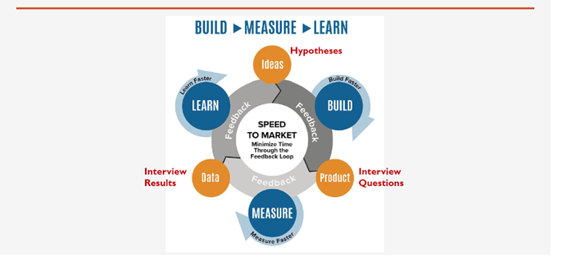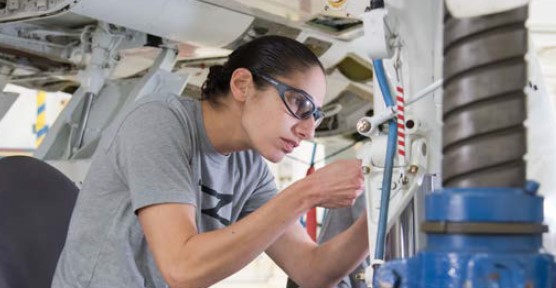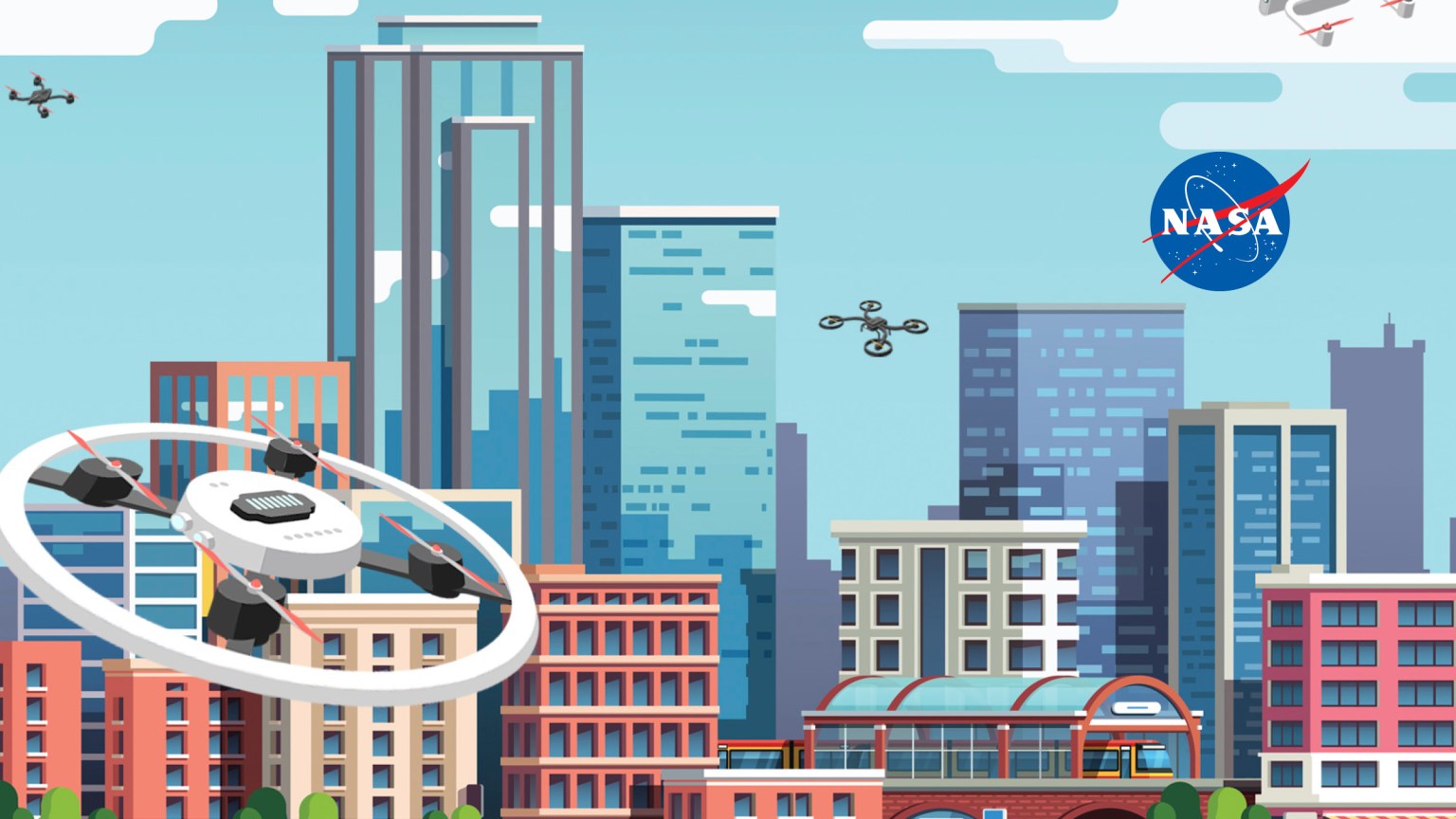
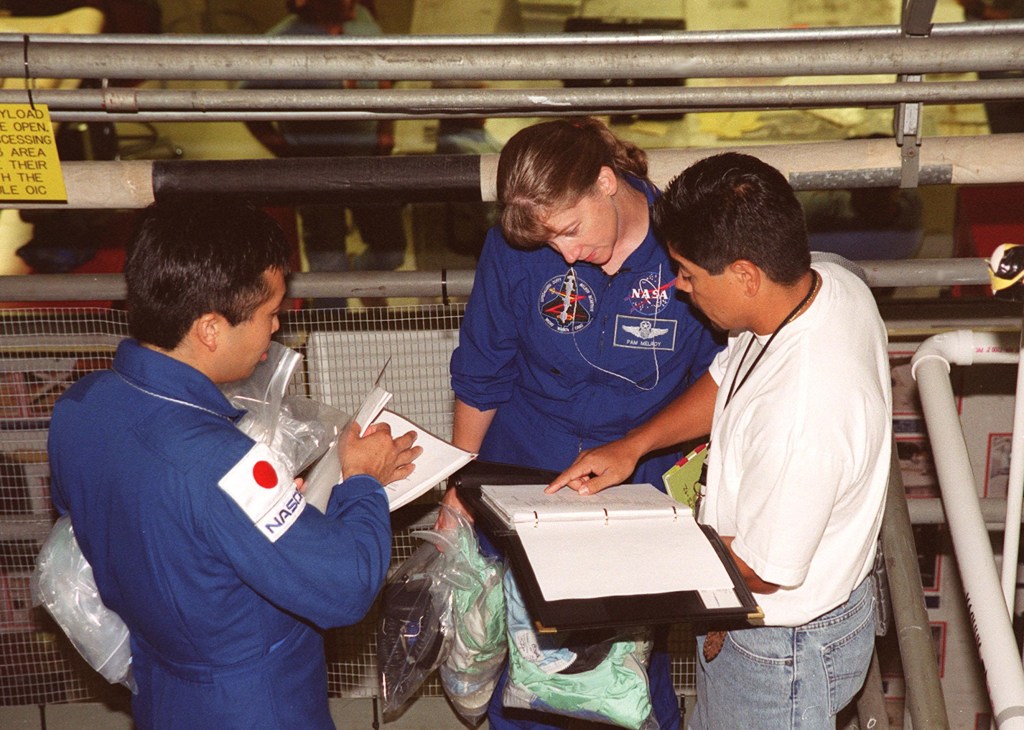
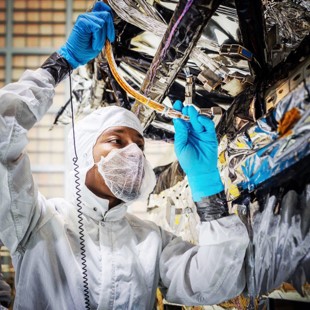
I-Corps
The NASA Innovation Corps (I-Corps) program enables small businesses to increase the odds of accelerating the process of developing their SBIR/STTR technologies into a repeatable and scalable business model. This opportunity is open to SBIR/STTR Phase I (including SBIR Ignite) and Post Phase II proposers during their relevant application periods.
Use the below links to jump to the I-Corps information you are looking for:
About I-Corps | Phase I Submissions Guidelines | Selection Criteria | FAQs | Schedule | Awardees
About I-Corps
The National Science Foundation (NSF) created the NSF Innovation Corps (I-Corps™) (hereinafter I-Corps) Program in 2011 to develop and nurture a national innovation ecosystem that builds upon fundamental research to guide the output of scientific discoveries closer to the development of technologies, products and processes that benefit society.” NSF’s I-Corps training is designed to lower the market risk inherent in bringing a product or innovation to market, thereby improving the chances for a viable business. Since NSF started the I-Corps Program in 2011, several other Federal agencies have funded I-Corps cohorts including NIH, DHS, USDA, DOD, and DOE.
The goals of the SBIR/STTR and the I-Corps programs overlap by encouraging the innovation and entrepreneurship of small businesses and enabling those businesses to commercialize their innovations. NASA’s SBIR/STTR program releases solicitations for research and development that are of interest to NASA’s Mission Directorates with the goal that the selected technologies will become a success by being transitioned, or infused, into a NASA program, or by commercial success outside of NASA and the Federal Government.
With this goal in mind, NASA, through the SBIR/STTR Program, worked with NSF to implement a pilot I-Corps program in 2017 as part of the NASA SBIR/STTR Solicitation. The NASA I-Corps program enables small businesses, including start-up firms, to increase the odds of accelerating the process of developing their SBIR/STTR technologies into a repeatable and scalable business model. The program accomplishes this by putting the firms through a version of the Lean Launchpad – I-Corps process, which includes:
- developing their business model hypotheses using the Business Model Canvas
- testing those hypotheses through the Customer Development Interview process
The intended results of I-Corps are to enable firms to conduct customer discovery to learn their customers’ needs, to obtain a better understanding of their company’s value proposition as it relates to those customer needs, and to develop an outline of a business plan for moving forward.
The I-Corps training program will introduce the concept of a Business Model Canvas, which provides the framework that guides the I-Corps learning. As part of this curriculum, each team must commit to pursuing a formal hypothesis-validation approach to identify and mitigate gaps in knowledge in the following seven areas:
- Value Proposition of the proposed product or service
- Customer/User-case and pain point
- Demand Creation
- Channel Development
- Revenue Model
- Partnership Strategy
- Resource Requirement
The I-Corps curriculum uses a hypothesis-driven method of customer discovery in order to gain insights into the issues associated with technology commercialization. During the course, I-Corps teams share what they learn with other teams, obtaining new insights into the prospective impact of the technology being developed under the SBIR or STTR training grant. It is anticipated that the feedback and learning captured during the I-Corps program will help inform future Phase II SBIR/STTR projects and commercialization strategies.
I-Corps Short Course: Beat-the-Odds Boot Camp Program for SBIR Phase I
SBIR teams will participate in a modified, less intensive “Boot Camp” version of I-Corps that will last 7 weeks, requiring about 10-20 hours per week from the participating team. NASA is offering this Boot Camp because the time commitment for I-Corps runs concurrently with the period of performance for Phase I and therefore, similar to SBIR awards, I-Corps is to be completed by the last day of the Phase I period of performance or as stated in the modification awarded for the I-Corps effort. NASA expects the Technical Lead, typically the Principal Investigator, and potentially the Entrepreneurial Lead to be heavily involved in both the I-Corps training and the Phase I effort which may include the Phase II proposal writing effort. Each SBIR team participating in I-Corps training, including all its team members, will be required to:
- Attend the virtual 2-hour kick-off Entrepreneurial Immersion course (date to be announced).
- Conduct approximately 30 customer interviews over the 7-week program and submit interview summary reports.
- Participate in weekly webinar sessions and submit regular updates to the team’s business model canvas.
- Attend weekly “office-hour” session with I-Corps instructor.
- Attend the virtual 1-day close out I-Corps Lessons Learned session.
The Boot Camp Program focuses on customer discovery, customer segments, and value propositions. The Boot Camp goal is to identify a single beachhead market segment for further discovery.
The NASA SBIR Ignite falls under the SBIR/STTR program. The above I-Corps Boot Camp guidelines for the “traditional” SBIR Phase I are the same for the Ignite SBIR Phase I.
Starting in 2023, NSF offers Boot Camp three times per year, winter, spring, and fall.
Note: If one or more team members cannot meet these requirements, the team should not pursue the program.
National I-Corps Program for STTR Phase I
STTR teams will participate in the complete version of I-Corps lasting 7 weeks. Similar to SBIR awards, I-Corps is to be completed by the last day of the STTR Phase I period of performance or as stated in the modification awarded for the I-Corps effort. The Technical Lead, typically the Principal Investigator, and potentially the Entrepreneurial Lead are expected to be heavily involved in the Phase I effort and in any Phase II proposal writing effort. The commitment to I-Corps will be concurrent with the Phase I work; however, the longer period of performance for an STTR Phase I allows for a more intensive I-Corps experience. During the I-Corps course, each participating STTR team, including all its team members, will be required to:
- Attend a 4-day kick-off Entrepreneurial Immersion course (via webinar).
- Conduct approximately 100 customer interviews over the 7-week program and submit interview summary reports. This process of customer discovery “outside the building” is expected to require a minimum of 15 hours per week per each I-Corps team member for at least five weeks.
- Participate in the 5 weekly webinar sessions and submit regular updates to the team’s business model canvas. In addition, it is expected that I-Corps teams will take advantage of instructor office hours.
- Attend the final 2-day course close out/lessons learned session (via webinar).
The National I-Corps Program goals are the following:
- Provide SBIR/STTR I-Corps companies with an experimental learning opportunity to help build and validate key elements of their business model.
- Give companies an opportunity to iterate or pivot direction as they progress through their Phase I or Post Phase II efforts.
- Enable companies to develop clear “next step” decisions regarding their commercialization efforts.
Note: All spring, summer, fall, and winter cohorts of the National I-Corps Teams program will be held virtually. In addition, NSF will update the status of future cohorts.
I-Corps for SBIR/STTR Post-Phase II
Starting in 2021, the NASA SBIR/STTR Program will offer both the Beat-the-Odds Boot Camp Program and the National I-Corps Program to companies that have been selected for award of either a SBIR/STTR Phase II-E or a CCRPP. The specific details are provided below.
Companies that have successfully negotiated and executed the Modification to their existing SBIR or STTR Phase II contract for the Phase II-E Option will be invited to participate in the Boot Camp version of I-Corps, same as that offered to the SBIR Phase I companies. These same Phase II-E companies are ineligible to participate in the National I-Corps Program. (Reason: As the Phase II-E Period of Performance is twelve months and the spending rate is up to twice that for the Phase II contract, commitment of 20 to 40 hours per week for 6 weeks required for participation by the Principal Investigator in the comprehensive I-Corps program is an unreasonable time burden for the Phase II-E project effort.)
Companies that have successfully negotiated and executed the contract for the CCRPP program, which will utilize previously developed SBIR or STTR Phase II technology, will be invited to participate in either the Boot Camp version of I-Corps, same as that offered to the SBIR Phase I companies, or the National I-Corps Program, same as that offered to the STTR Phase I companies.
The NASA SBIR Ignite falls under the SBIR/STTR program. The above I-Corps Boot Camp guidelines for the “traditional” SBIR/STTR Phase II-E are the same for the Ignite SBIR/STTR Phase II-E.
Introductory Webinars
NSF holds a monthly Introductory Webinar to present basic information and answer questions about I-Corps. These Webinars provide updated information about I-Corps contacts, the curriculum, important dates, and other aspects of the program.
NSF will include some material which is specific to NASA in its upcoming webinars. You are welcome to attend these sessions and participation is voluntary. For information on audio and visual access and for a list of upcoming NSF I-Corps Teams webinars, please visit NSF’s I-Corps webinar homepage at https://www.nsf.gov/news/special_reports/i-corps/webinars.jsp.
*Please note that you should participate in the I-Corps Teams webinars, not the Hubs webinars.
NASA I-Corps Webinar: NASA holds special I-Corps webinars for firms selected to receive Phase I SBIR and STTR awards. The most recent webinar took place on June 13, 2024; check out the slides under the Resources section at the top of this page.
Phase I Submissions Guidelines
Opt-In Form
Firms submitting Phase I SBIR/STTR proposals will complete a short I-Corps Opt-In Form as part of their Phase I proposal submission. The form does not count towards the page count of Phase I proposals. If a large number of firms express interest, the Government reserves the right to limit the number of firms invited to submit I-Corps proposals based upon the Government’s assessment of the initial summary statements.
NASA will use the Opt-In form to determine eligibility to participate in the I-Corps program. This form will request the following representations:
- The firm shall verify that it is eligible to participate in NASA’s I-Corps Program. Eligibility requirements are: 1) the firm is a small business, 2) the firm has not previously participated in I-Corps programs offered by other Federal agencies, and 3) the firm is submitting an SBIR or STTR Phase I proposal to the active NASA SBIR/STTR Solicitation.
- The firm shall verify that it is aware that I-Corps teams will participate in an Entrepreneurial Immersion course that will require each team participant to invest significant time. The complete version, National I-Corps Program for STTR teams, will require a minimum of 15 to 20 hours of time per week for 7 weeks. The Boot Camp version (for SBIR teams) will require approximately one-third of the total STTR work volume, spread over a 7-week period.
- The firm shall verify that it is able to provide the substantial commitment of time and effort required to successfully participate.
- The firm shall verify that it is aware that I-Corps specifically targets the commercialization of SBIR/STTR-funded research.
- The firm shall verify that it understands that if selected for an interview for participation in the National I-Corps Program, it will need to identify a Technical Lead (typically the Principal Investigator), Entrepreneurial Lead, and Industry Mentor to participate in the interview.
- The firm shall provide a short statement explaining why they believe their technology or company would benefit from participation in I-Corps.
I-Corps Proposal
For SBIR/STTR Phase I awardees, to be qualified to submit an I-Corps proposal: 1) firms must have submitted the I-Corps Opt-In Form as part of their Phase I proposals; and 2) firms must be selected for a Phase I award. For the SBIR/STTR firms that have been selected for award for 2022 and 2023 SBIR/STTR Post-Phase II programs (i.e., SBIR/STTR Phase II-E and CCRPP), the firms will be invited to submit an I-Corps proposal. Participating firms must form a team composed of three main members: the Technical Lead (typically the Principal Investigator), the Entrepreneurial Lead, and the Industry Mentor. (For the Boot Camp Program, the inclusion of an Industry Mentor for the team is not mandatory, but is highly recommended.)
- Technical Lead: The Technical Lead serves as the technical lead and project manager and ideally should be the Principal Investigator on the contracted SBIR/STTR award. The Technical Lead is required to have an in-depth knowledge of the technology being developed and has primary responsibility for achieving the technical success of the project. In the scenario where the Technical Lead or Principal Investigator is also the CEO of the small business, NASA I-Corps applicants are encouraged to consider designating an alternate C-Level Corporate Officer to lead the team. The Technical Lead will be responsible for overall grant management.
- Entrepreneurial Lead: The Entrepreneurial Lead should have relevant knowledge of the technology and a deep commitment to investigate the commercial landscape surrounding the innovation. This person should be a C-Level Corporate Officer (i.e., Chief Executive Officer, Chief Technology Officer, Chief Operating Officer, or similar level officer). The CEO and/or CTO of the Small Business Concern (SBC) are expected to participate as I-Corps team members. Having the SBC’s key decision maker(s) on the I-Corps team ensures that the learning from the program will fully impact the business direction of the company. The Entrepreneurial Lead should also be capable and have the will to support the transition of the technology, should the I-Corps Teams project demonstrate the potential for commercial viability. The Entrepreneurial Lead will be responsible for proceeding along a content-guided path to develop, over the course of the training, a final technology-disposition plan.
- Industry Mentor: The Industry Mentor should be an experienced or emerging entrepreneur with proximity to the SBC and experience in translating technologies to the marketplace. The Industry Mentor should be selected as a third-party resource or may be a person that has an established relationship with the company (e.g., Board Member) but who is not an employee. Ideally, the Industry Expert should have prior experience developing and commercializing other products within the broader technology space related to the specific SBIR/STTR project under development. The Industry Mentor will be responsible for guiding the team forward and for tracking progress through regular communication with the cognizant I-Corps program director. For the Boot Camp Program, the inclusion of an Industry Mentor for the team is not mandatory, but is highly recommended
The Technical Lead may not serve both roles of Technical Lead and Entrepreneurial Lead for the Boot Camp or National I-Corps Team. However, it is acceptable for the Technical Lead (or SBIR/STTR Principal Investigator) to serve as the Entrepreneurial Lead and for the company to assign another technical person in the company to serve in the I-Corps Technical Lead role.
The I-Corps Proposal shall follow the same format requirements as the SBIR/STTR Phase I proposal. The format requirements are available in the SBIR/STTR Program Phase I Solicitations. The I-Corps Proposal package must include the following sections/information in order to be considered complete:
- Certifications (to be accessible in the EHB)
- Form NF1206 (to be accessible in the EHB)
- GIC 12-01 Assurance of Compliance (to be accessible in the EHB)
- GIC 12-02 Representation and Certification (to be accessible in the EHB)
- I-Corps Team and Commercialization Plan (to be developed by the applicant and uploaded to the EHB with the required following sections. The overall plan is limited to five pages)
- I-Corps Team: Biographical sketches of I-Corps team members (Technical Lead, Entrepreneurial Lead, and Industry Mentor) of the team members proposing to undertake the commercialization feasibility research and their commitment to participate in I-Corps (limited to one page per team member).
- Commercialization Plan (limited to two pages). This shall build upon the commercialization information provided in the Phase I proposal or Post-Phase II proposal and include:
- Identification of commercial application(s) and market(s) for the proposed technology
- Types of customers the firm plans to interview
- Sample list of potential customers for the targeted market(s)
- Brief description of the potential non-NASA commercial impacts of the project
- Brief description of how the firm will select, contact, and request interviews for a minimum of thirty prospective customers for Boot Camp Program and one hundred prospective customers for National I-Corps Program
- Planned travel
- Types of customer discovery the firm hopes to accomplish through I-Corps
- What steps the company will take to move the project closer to commercialization
- I-Corps Proposal Budget (to be developed by the applicant and uploaded to the EHB with the required following sections. The budget is limited to one page)
- Capped at $10,000 for each Boot Camp team and $25,000 for each National I-Corps team
- Only recovery of certain direct costs associated with participation in I-Corps and indirect costs are allowed; no recovery of profit is allowed
- The budget should include the following six components, which are the only allowable costs:
- Maximum of $4,000 for Entrepreneurial Lead compensation (no compensation for the Technical Lead or I-Corps Mentor) for each Boot Camp team and $5,500 for each National I-Corps team.
- An estimate for the travel costs associated with team member participation in required kick-off and close out / lessons learned meetings (i.e. airfare, per diem costs, other). Maximum is $3,000 for each Boot Camp team and $5,000 for each National I-Corps team.
- Costs for workshop registration fees that will be paid by the team to the instruction service (logistics) providers. Maximum is $450 for each Boot Camp team and $4,500 for each National I-Corps team.
- Estimated costs for travel associated with the three team members traveling as a group to conduct customer interviews (30 interviews for Boot Camp participants and 100 interviews for National I-Corps participants). Maximums are $2,550 for each Boot Camp team and $10,000 for each National I-Corps team.
- Other costs; e.g., virtual tools to facilitate interviews such as Zoom Meeting subscriptions, LinkedIn Premium membership, inexpensive headsets, books, DropBox, virtual customer discovery tools such as Calendly and Zoom Meeting, and conference fees for attending virtual conferences – but not “booths” or other marketing expenses.
- Indirect costs associated for the above five direct cost categories.
Compensation for the Entrepreneurial Lead is supplemental to the compensation (either for direct or indirect cost) provided by the SBIR/STTR Phase I award(s), Phase II award(s), or Post-Phase II award(s). The SBC may not propose and/or invoice for time and effort that is also budgeted/charged for compensation on the Phase I award(s) or Post-Phase II award(s).
For National I-Corps teams, requested budget in the Workshop Registration Fees category and Travel for Kickoff and Close Out Meetings category may be exchanged as long as the total sum for the two combined categories does not exceed $9,500.
The template for the budget is the following:
I-Corps Proposal Budget
| Item | Amount |
| Entrepreneurial Lead compensation – Maximum of $4,000 for Boot Camp and $5,500 for National I-Corps teams. Is this proposed Entrepreneurial Lead Compensation for time and effort also compensated through indirect or direct costs in the Phase I, Phase II, or CCRPP contract(s)? Yes __ or No__ If yes, please state what percentage _______% | $ |
| Travel for kickoff and close out meetings – Maximum of $3,000 for Boot Camp and $5,000 for National I-Corps teams. | $ |
| Workshop registration fees – Maximum $450 for Boot Camp and $4,500 for National I-Corps teams. | $ |
| Travel for customer interviews – Maximum of $2,550 for Boot Camp and $10,000 for National I-Corps teams. | $ |
| Other costs | $ |
| Indirect cost | $ |
| Total | $ |
Selection Criteria
For the SBIR/STTR Phase I awardees, the I-Corps Proposal will be due two weeks after formal notification that the firm has been selected for negotiation of a Phase I SBIR or STTR contract. For SBIR/STTR Phase II-E and CCRPP awardees, the firms will be invited to prepare and submit an I-Corps Proposal. The firm shall submit their I-Corps Proposal into the Proposal Submission EHB, which shall be opened for the eligible firms.
Note: Proposals for I-Corps have separate page limitations outside the page limitations for Phase I and CCRPP.
NASA will review and assess firms, and their proposals, competing to participate in I-Corps training to select the best participants to attend Boot Camp or the National I-Corps cohort. I-Corps proposals shall undergo administrative screening for completeness and adherence to the application guidelines. Incomplete applications or those not following application guidelines may be automatically rejected. Proposals that pass administrative screening shall then be reviewed to assess their content. NASA will perform a programmatic assessment of firms and their technologies, including:
- Number of previous SBIR/STTR awards received by the firm and the firm’s commercialization success rate (Companies with no or fairly recent SBIR/STTR awards will not be penalized for under past performance for the lack of SBIR/STTR commercialization under SBIR/STTR awards)
- Potential for commercialization of the selected Phase I, Phase II, or Post-Phase II research/ solution to non-NASA markets (distinct from integration/transition into NASA programs)
- Technical relevance to NASA.
Based on these assessments, certain firms will be selected to participate in phone interviews conducted by the NASA SBIR/STTR PMO and the NSF-provided I-Corps instructors. NASA will use these interviews to determine the dynamics of the teams and gauge their level of commitment to meeting required for I-Corps to make the final selection. NASA will make the final selections for I-Corps based upon its initial assessments of the I-Corps proposals and the assessments of the phone interviews.
NASA anticipates approximately 35 SBIR and 8 STTR firms will be selected for participation in I-Corps each fiscal year.
Frequently Asked Questions
Who leads the program?
The training is led by I-Corps-certified instructors who have each created one or more companies and who have also served as industry mentors. The instructors lead the classroom training, material presentations, feedback and lessons learned discussions, office hours, and webinar presentations.
What is expected of me?
Besides classroom participation both at the Kickoff Workshop and Closing Workshop, the teams attend weekly webinars led by the instructors, perform weekly homework assignments (books/articles and videos), and attend office hours hosted by the I-Corps instructors.
What is the NASA I-Corps curriculum?
The I-Corps Teams quickly learn the I-Corps process. First the team presents a hypothesis for each of the following: the market, application for the SBIR/STTR technology, customer segment(s), and value statement for each customer segment. Through customer discovery interviews, the team either verifies or changes its several hypotheses.
Through this evidence-based entrepreneurship, the team will:
- Establish Business Hypothesis
- Customer Types and Customer Discovery Best Practices
- Through interviews Determine customer pain points
- Derive Value Statements
- Discover Problem – Solution Fit.
Early in the I-Corps training program, the I-Corps instructors introduce the concept of a Business Model Canvas, a framework that helps small companies understand how to describe, explain, price, develop, and market their product or service. This is a critical part to a successful commercialization effort.
As part of the Canvas, each company creates a formal hypothesis-validation approach to identify and mitigate gaps in knowledge in the following seven areas:
- Product/Service Value Proposition
- Customer/User-Case and Pain Point
- Demand Creation
- Channel Development
- Revenue Model
- Partnership Strategy
- Resource Requirement
Other tools the team will use include market sizes, industry ecosystems, industry value chain, workflow, competition and competitive technologies, key players, payment flow, and channels (sales, distribution, and service). The end result, the team will determine customer problem – solution fit, product-market fit, beachhead market, and the basis for an initial draft of a comme4clization plan.
How do I protect both my intellectual property (IP) rights during the I-Corps customer discovery process (i.e., interviews) and my firm’s ability to commercialize the product?
You will learn from the I-Corps Instructors not to sell or provide a description of your Phase I, Phase II, or Post-Phase II technology to the interviewees. Instead, you will be instructed to learn from the interviewees about their major problems or pain points. As a result, there will be no reason for you to ask your interviewee to sign a Non-Disclosure Statement.
Are there deliverables needed to complete the NASA I-Corps Training?
Yes, the following deliverables are required:
- Lessons Learned Presentation
- 2-Minute Lessons Learned Video (National I-Corps Program only)
- 1-Minute Technical Video (National I-Corps Program only)
- Business Model Canvas Initial
- Business Model Canvas Final
- Two-page Account of Award Outcomes and Impact to Society that includes:
- A brief statement (one page) of what value the firm obtained and learned by participating in the I-Corps Program
- A brief statement (one page) of what commercialization planning and/or activities the firm plans to undertake in the next year
Applying to I-Corps
Is the I-Corps Opt-In form included in the Phase I Proposal 19-page count?
No, the I-Corps Opt-In form does not count towards the page count of the Phase I proposals.
On the I-Corps Opt-In Form we submitted in our Phase I Proposal Package, we marked “No” for participation in the I-Corps training program. Are we eligible to submit an I-Corps Proposal?
All SBIR/STTR Phase I awardees are eligible to submit an I-Corps proposal even if you did not opt in on the Phase I proposal submission.
What is the difference between the Phase-I proposal that was sent in for the actual NASA SBIR Phase I award, and the “Beat the Odds Boots Camp” proposal?
Your 2023 Phase I SBIR proposal will not be used as a proposal for the I-Corps “Beat the Odds Boot Camp” program. Both the National I-Corps and Boot Camp Programs require that you complete a separate I-Corps proposal.
Will companies without industry mentors not be considered?
For the National I-Corps Program, the Industry Mentor is required. For the Beat the Odds Boot Camp Program, the Industry Mentor is not required but highly recommended.
Is it possible to change the team members after submitting our application and before starting the program?
Yes, but you will need to provide the new team member’s resume to NASA and NSF and obtain written approval from NASA.
Where do we find candidates to serve as an Industry Mentor on our I-Corps Team?
Many of the ten NSF Hubs (Regional Office) maintain a list of candidate I-Corps Mentors; visit https://new.nsf.gov/funding/initiatives/i-corps/view-hubs. You may want to reach out to one or more Hubs near your Office. Another source is retired business executives and retired professionals. Consider reaching out to your local SCORE (Service Corps of Retired Executives) organization. SCORE is a nonprofit organization, and a resource partner of the U.S. Small Business Administration (SBA).
What makes a good Industry Mentor?
Good Industry Mentor attributes are the following:
- Someone who has business expertise in your sector and has entrepreneurial experience.
- Someone with the right “rolodex” – contacts in your area of commercialization are critical for “getting out of the lab”.
The industry mentor should not be an investor nor a potential customer.
I am both the Phase I Principal Investigator and business lead for the company. Is it acceptable that I serve as the Entrepreneurial Lead for our I-Corps Team and appoint someone else in my company to serve as the Technical Lead for our I-Corps Team?
It is acceptable for the Phase I Principal Investigator to serve as the Entrepreneurial Lead and assign another technical person in the company to serve in the I-Corps Technical Lead role.
Is the SBIR/STTR Phase I Principal Investigator mandatory for the I-Corps program? Can we replace them with someone else in the same organization?
You may select some other qualified technical person than the SBIR/STTR Phase I Principal Investigator to serve in the role of Technical Lead for the I-Corps Team.
If the Entrepreneurial Lead has plenty of bandwidth to engage in 100 interviews, but the Principal Investigator is significantly more limited due to existing employment, does that prevent the team from being selected for I-Corps? (Our Principal Investigator is a subcontracted research institution faculty member)
If the Principal Investigator cannot commit to the following:
- Participate in 100 interviews
- Present for all events including Kick-off and Closing meetings, and WebEx meetings
- Office hours with I-Corps instructor,
then some other qualified technical person must be selected to serve in the Technical Lead role for the I-Corps Team.
Can the Principal Investigator be also the Entrepreneurial Lead (in a small company)?
The SBIR/STTR Principal Investigator may not serve both roles of Technical Lead and Entrepreneurial Lead for the Boot Camp or National I-Corps Team. However, it is acceptable for the SBIR/STTR Phase I Principal Investigator to serve as the Entrepreneurial Lead and the company assign another technical person in the company to serve in the I-Corps Technical Lead role.
Does our Industry Mentor have to attend all the events? It is difficult to find someone willing to make the time commitment without compensation.
For the National I-Corps Program the Industry Mentor must attend all events including Kick-off and Closing meetings, and WebEx meetings as well as participate in most of the interviews.
An Industry Mentor is not required for the Beat the Odds Boot Camp program; however, it is highly recommended that you include an Industry Mentor in your Boot Camp team.
Why are the SBIR Phase I awardees not eligible to participate in the more comprehensive I-Corps Cohort Program?
The SBIR Phase I period of performance is 6 months. NASA believes the time commitment of seven weeks for the National I-Corps program period of performance (which occurs concurrently with the SBIR Phase I program) is too much of a time burden for the SBIR Phase Principal Investigator.
If a company has multiple applicable SBIR/STTRs, can they apply to I-Corps more than once and receive more than one training grant?
NASA SBIR/STTR Program Management Office (PMO) may decide to issue only one I-Corps Training Grant per company even if the company has two or more very different technologies. If the NASA SBIR/STTR PMO issues two or more I-Corps Training Grants to a company, the participants in each Team must be different from that of the other Team(s); i.e., no duplication of individuals’ names.
Is participation in the Boot Camp a requirement for submitting an SBIR/STTR Phase II proposal?
No. However, the completion of I-Corps Training will help you prepare a Commercialization Plan (Commercialization and Business Planning) for your SBIR/STTR Phase II proposal. The Commercialization Plan counts for 5 points of the total possible score of 100 for a Phase II proposal.
Do the potential customers and interviewees need to be in the United States?
NASA SBIR/STTR funds may not be used for travel or expenses outside of the US, which includes customer discovery activities. However, phone or video conference interviews with potential customers outside the US is allowed and encouraged.
If a company has a proven track record of successful technology commercialization, is there really much to be gained by being a part of this program?
There have been NASA SBIR/STTR companies with proven track records of successful technology commercialization and who have participated in the I-Corps program say that the I-Corps training was both valuable and transformational for them and their company.
The I-Corps Program training is a process that can be applied not only to marketing, product marketing, and sales, but also to senior management, strategy development, business development, and technology development.
Learning More about the Program
Will NASA include the I-Corps funding on the planned SBIR/STTR Phase I contract?
The small company will be issued a modification to either its SBIR/STTR Phase I contract, SBIR/STTR Phase II contract, or its CCRPP contract for either the National I-Corps program or the Beat-the-Odds Boot Camp program.
Is it possible to talk to past participants/attendees for NASA I-Corps program and Boot Camp program?
Yes, NASA encourages SBCs to talk to past NASA SBIR/STTR I-Corps awardees; see the Awardees section below for lists of past years’ awardees.
Who are the NASA I-Corps Program points of contact?
| Technical and Programmatic: I-Corps for SBIR/STTR Phase I Awardees Dina A. Salazar, NASA SBIR Program Specialist Dina.A.Salazar@nasa.gov I-Corps for SBIR/STTR Phase II-E and CCRPP Awardees Alison Mutter, NASA SBIR Program Specialist Alison.Mutter@nasa.gov | Contractual: Kenneth E. Albright, Lead Contract Specialist Kenneth.E.Albright@nasa.gov |
Further Reading?
Yes, there are reference textbooks and videos recommended for those about to begin I-Corps.
Required Texts and Videos
- The Startup Owner’s Manual by Steve Blank and Bob Dorf
- Business Model Generation by Alexander Osterwalder and Yues Pigneur
- Steve Blank articles and videos at: https://steveblank.com
Recommended Texts
- Value Proposition Design by Alexander Osterwalder, et al.
- Talking to Humans by Giff Constable and Frank Rimalovski.
Upcoming Schedule
Dates are tentative and subject to change. Eligible small businesses will receive emails with official open/close dates.
SBIR/STTR Post-Phase II I-Corps
Submissions Open: October 28, 2024
Submissions Close: November 8, 2024
Proposals Selected: December 10, 2024
Bootcamp Runs: February – April 2025
Awardees
All awardees will be notified via email.






